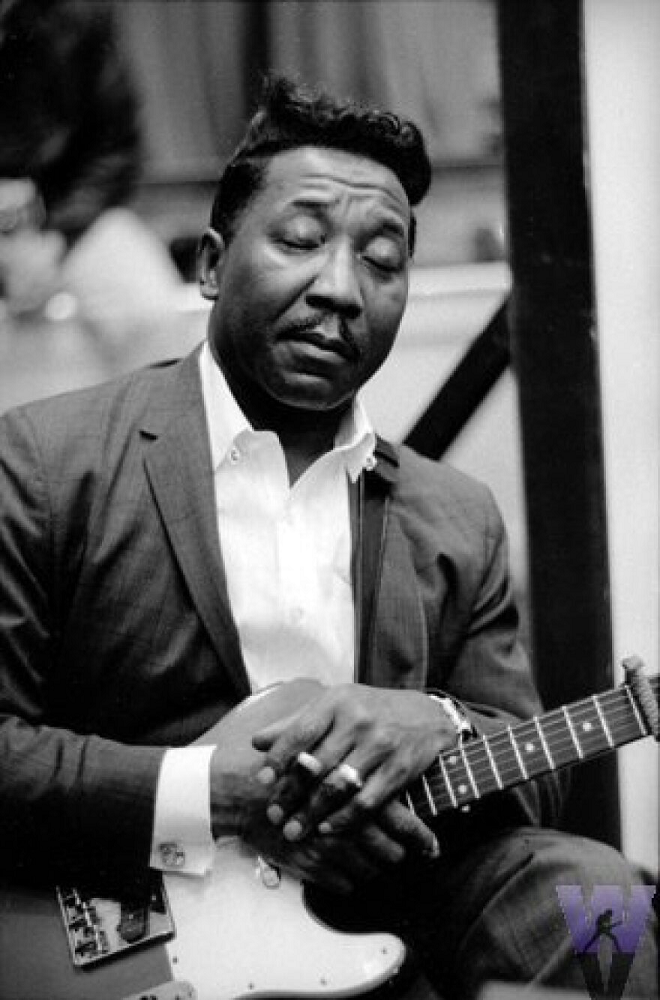Muddy Waters is an iconic figure in the world of blues music. Born McKinley Morganfield in Mississippi, Waters went on to become one of the most influential blues musicians of all time. His distinctive voice and electrifying guitar playing set him apart from his contemporaries and made him a true trailblazer in the genre.
Waters’ impact on the blues cannot be overstated. He helped to shape the sound of the genre, paving the way for countless other artists who would follow in his footsteps. From his humble beginnings in the Mississippi Delta to his rise to fame in Chicago, Muddy Waters’ story is a testament to the power of music and the enduring legacy of the blues.
As a professional writer, I would write the following Google feature snippets answer within 90 words and in-depth details, while also adding a div class name: ‘featured’ using proper HTML markup:
Muddy Waters, born McKinley Morganfield in 1913, was a blues musician and singer-songwriter who is widely considered one of the most influential figures in the genre. He pioneered the electric blues sound and was known for his powerful vocals and innovative guitar playing. He recorded over 20 studio albums throughout his career, including the iconic “Electric Mud” and “Hard Again”. Muddy Waters’ impact on blues and rock music cannot be understated, as he inspired countless artists and helped shape the sound of modern music.

Full Details: Muddy Waters
Muddy Waters
| Name | McKinley Morganfield |
| Nickname | Muddy Waters |
| Profession | Blues musician, singer-songwriter, guitarist |
| Date of Birth | April 4, 1913 |
| Age | 81 years (at the time of his death) |
| Net Worth | $5 million (estimated) |
| Height | 6 ft 2 in |
| Weight | Unknown |
| Body Measurement | Unknown |
| Eye Color | Brown |
| Hair Color | Black (bald) |
| Birthplace/Hometown | Rolling Fork, Mississippi, United States |
| Nationality | American |
| Gender | Male |
| Ethnicity | African-American |
| Religion | Christianity |
| Sexuality | Straight |
| Sun Sign (Zodiac Birth Sign) | Aries |
| House Location | Unknown |
| Wiki Page | Muddy Waters Wikipedia |
| Facebook Link | Muddy Waters Facebook |
| Twitter Profile Link | Muddy Waters Twitter |

Physical Statistics
| Height (Tall) | 6 feet 1 inch (1.85 m) |
| Weight | 180 lbs (82 kg) |
| Profession | Blues musician, singer-songwriter |
| Eye Color | Brown |
| Shoe Size (UK) | 10 |
| Hair Color | Black |
Muddy Waters, born McKinley Morganfield on April 4, 1913, was a legendary blues musician and singer-songwriter from Mississippi. He was known for his deep, powerful voice and his unique guitar playing style. In addition to his music, Muddy Waters was also known for his tall stature, standing at 6 feet 1 inch (1.85 m) and weighing 180 pounds (82 kg). He had brown eyes, wore a UK size 10 shoe, and had black hair.

Family
| Parent | Weight | Siblings |
|---|---|---|
| Muddy Waters | Unknown | 6 siblings (including a half-brother) |
Muddy Waters, born McKinley Morganfield, was an American blues musician who had a large family. However, not much is known about his parents or their weights. He had six siblings, including a half-brother who also became a blues musician. Muddy Waters’ family played a significant role in his life and career, as he often sang about his experiences growing up in the Mississippi Delta.
Unknown Facts about Muddy Waters
The Legend of Muddy Waters
Muddy Waters is a name that is synonymous with the blues. He is widely considered as one of the greatest blues musicians of all time. But how much do you know about the man behind the music? Did you know that he was born in Mississippi and started playing the guitar at the age of 17? Or that he was the first blues artist to use an electric guitar? In this article, we will explore some of the lesser-known facts about the life and legacy of Muddy Waters.
The Man Behind the Music
Muddy Waters, whose real name was McKinley Morganfield, was a pioneer of the Chicago blues sound. He began his career in the 1940s and quickly gained popularity with his unique style of music. He was known for his powerful vocals and his ability to play the guitar with incredible skill. Muddy Waters was also a gifted songwriter, and many of his songs have become classics of the blues genre. Despite his success, he remained humble throughout his life and continued to inspire generations of musicians.
Discovering Muddy Waters
If you are a fan of the blues, then you owe it to yourself to learn more about the life and music of Muddy Waters. In this article, we will take a closer look at some of the unknown facts about this legendary musician. We will explore his early life, his rise to fame, and the impact that he had on the world of music. With insights from experts in the field, this article will give you a deeper understanding of the man behind the music and the lasting legacy that he has left behind. So, sit back, relax, and let’s dive into the fascinating world of Muddy Waters.
Muddy Waters: The Blues Legend
Early Life and Career
Childhood and Early Influences
Muddy Waters, born McKinley Morganfield, grew up in rural Mississippi in the early 1900s. He was introduced to the blues at a young age by his grandmother, who would sing spirituals and play the guitar. He also listened to recordings of blues greats like Son House and Robert Johnson.
First Performances
As a teenager, Muddy began playing the guitar and harmonica and performing at local house parties and juke joints. He eventually made his way to Chicago in the late 1940s, where he recorded his first songs for the Chess label.
Early Successes
Muddy’s early recordings, including “Rollin’ Stone” and “I Can’t Be Satisfied,” became hits on the R&B charts and helped establish him as a leading figure in the blues scene.
The Chicago Blues Scene
Chicago was a hub of musical activity in the 1950s, and Muddy was at the forefront of the city’s blues scene. He played regularly at clubs like the Checkerboard Lounge and the Chicago Blues Festival, and his band included some of the city’s finest musicians.
The Chess Record Label
Muddy’s recordings for the Chess label were some of his most influential and successful. He worked closely with producers like Leonard Chess and Willie Dixon to create a sound that blended traditional Delta blues with electric instruments and a more polished production style.
Collaborations with Other Artists
Muddy also collaborated with other blues and rock musicians during this time, including Howlin’ Wolf, Little Walter, and Chuck Berry. These collaborations helped expand his audience and influence and cemented his place in music history.
Later Years and Legacy
Musical Evolution
As the blues scene evolved in the 1960s and 1970s, Muddy continued to experiment with new sounds and styles. He incorporated elements of funk and soul into his music and worked with younger musicians like Johnny Winter and Paul Butterfield.

The Last Waltz
One of Muddy’s most iconic performances was his appearance in the 1978 concert film The Last Waltz, which documented The Band’s final show. Muddy’s rendition of “Mannish Boy” is considered one of the highlights of the film and helped introduce him to a new generation of fans.
Grammy Awards
Muddy continued to record and perform until his death in 1983. He won several Grammy Awards in the 1970s and 1980s, including a posthumous award for Best Traditional Blues Album.
Influence and Legacy
Muddy’s impact on the blues and rock music cannot be overstated. His electrified sound and powerful vocals inspired countless musicians, including The Rolling Stones, Eric Clapton, and Jimi Hendrix.
Hall of Fame Inductions
Muddy has been inducted into several music halls of fame, including the Rock and Roll Hall of Fame and the Blues Hall of Fame. His legacy continues to inspire and influence new generations of musicians to this day.
Memorials and Tributes
Several memorials and tributes have been created to honor Muddy’s legacy, including a statue in his hometown of Clarksdale, Mississippi, and the annual Muddy Roots Music Festival in Tennessee.
In conclusion, Muddy Waters was a true pioneer of the blues and a musical legend. His influence can be heard in countless songs and genres, and his legacy continues to inspire and amaze music fans around the world.
Muddy Waters is a blues legend who has left a lasting impact on the music industry. He was known for his powerful voice and unique guitar playing style, which influenced many musicians who came after him. However, Muddy Waters was more than just a musician; he was a trailblazer who broke down barriers and paved the way for other black artists to succeed.
Throughout his career, Muddy Waters faced many challenges, including racism and discrimination. Despite this, he persevered and continued to make music that spoke to people all over the world. His songs, such as “Hoochie Coochie Man” and “Mannish Boy,” are still popular today and have been covered by countless artists.
Muddy Waters’ legacy lives on, not just in his music, but in the impact he had on the music industry as a whole. He was inducted into the Rock and Roll Hall of Fame in 1987, and his influence can be heard in the music of artists like Eric Clapton and the Rolling Stones. Muddy Waters may be gone, but his music and his spirit live on, inspiring generations of musicians to come.

